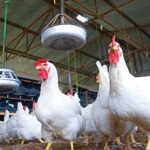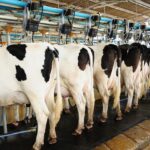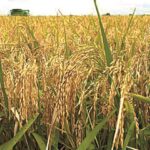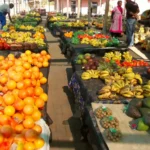1.0 BACKGROUND
The Federal Government of Nigeria has received a Facility from the African Development Bank (AfDB), International Fund for Agricultural Development (IFAD) and the Islamic Development Bank (IsDB) to finance the cost of the Special Agro-Industrial Processing Zones Program (SAPZ), and intends to apply part of the proceeds towards carrying out various consultancy services. The SAPZ Program is being implemented in the seven (7) States and the Federal Capital Territory (FCT). The States are Cross River, Imo, Kaduna, Kano, Kwara, Ogun and Oyo.
The overall development objective of the SAPZ programme is twofold: (1) Support the development of SAPZ in high food production areas to supply the domestic food market and create exportable surpluses; and (2) Capacitate smallholder farmers, small agro-processors and traders, and community-based service providers, including women and youth; to take advantage of the market demand created by the SAPZ to sustainably enhance their income, household food security and resilience to climate change.
The programme has four components namely:
➢Component 1: Infrastructure Development and Management for Agro-Industrial Hubs (AIHs). Under this AfDB-led component, the programme will support the FGN in developing and setting up SAPZs in high potential states.
➢Component 2: Agricultural Productivity, Production, Market Linkages and Value Addition in SAPZ Catchment Areas. Under this component, SAPZ’s objective is threefold: (i) support smallholder farmers and small operators to increase their productivity/production and capacity to add value to raw materials on a profitable and environmentally sustainable basis; and (ii) link them to the additional market outlets offered by the Agro-Industrial Hubs (AIHs), off-takers supplying the local and national market who operate in the target area, and small processors/traders supplying the local markets, including primary processors operating in the Agricultural Transformation Centres (ATCs); iii) enhance the resilience and adaptive capacity of smallholder farmers to climate change..
➢Component 3: Policy and Institutional Development Support. The objective of component 3 is to support the development of enabling policies, legislation, and regulation for SAPZs in Nigeria to create a conducive business environment for private sector investment and to address inefficiencies and market failures in agricultural value chains.
➢Component 4: Programme Coordination and Management. This component will ensure that the programme is efficiently and effectively managed to achieve expected results.
This Consultancy is 3 phased activities consisting of conduct of Rapid Financial Appraisal (RFA), Establishment of Financial Service Association (FSA) and conduct of capacity building for FSA Officials as well as production and enterprise groups.
The Special Agro-Industrial Processing Programme (SAPZ), supported by the African Development Bank (AfDB), aims to transform Nigeria’s agricultural sector by establishing agro-industrial hubs (AIHs) and agricultural transformation centers (ATCs). A critical component of this transformation involves enhancing access to finance for farmers and agribusinesses within farming clusters. Currently, perceived high risks, limited financial literacy, and inadequate financial infrastructure hinder private sector investment and sustainable growth. To address these challenges, this comprehensive activity seeks to conduct a rapid financial appraisal, establish Financial Services Associations (FSAs) within the catchment areas of AIHs and ATCs, and build the capacity of FSA management staff. This integrated approach will foster a more robust financial ecosystem, de-risk investments, attract greater private sector participation, and improve overall service delivery for agribusinesses in SAPZ AfDB States (Cross River, Kaduna, Ogun, and Oyo).
2.0 OVERALL OBJECTIVES
The principal objective of this engagement is to strengthen the financial ecosystem within SAPZ farming clusters to de-risk investment and attract greater private sector participation, ultimately leading to enhanced service delivery for agribusinesses within the SAPZ catchment areas. This will be achieved by:
I. Assessing the financial landscape of farming clusters to identify opportunities for establishing viable and sustainable Financial Services Associations (FSAs) and Accumulating Savings and Credit Associations (ASCAs).
II. Establishing and operationalize FSAs that provide accessible and tailored financial services (savings, credit, insurance, payments) to production groups, enterprises, and individuals within the AIH and ATC catchment areas.
III. Building the capacity of FSA management and staff in financial management, credit appraisal, governance, digital financial services, and agricultural value chain financing to ensure sustainable operations and effective service delivery.
IV. Building the capacity of Producers and Enterprise Groups on group dynamics and other management practices to promote group cohesion, productivity and efficient service delivery.
Kindly download the attached document for more details please.






Recent Comments